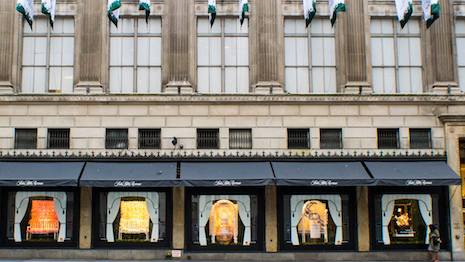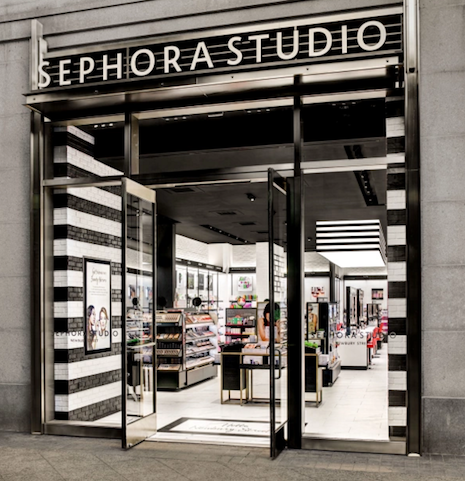
Retail
Retailers Scale Back on Real Estate to Streamline Efficiency
by
Brielle Jaekel | October 31, 2017
Luxury retailers, such as Hudson’s Bay Company and Sephora, have to rethink their environment in order to remain efficient in the era of online shopping.
As consumer behavior continues to change and online shopping further disrupts the sector, retailers must look to streamline their real estate presence.
Retailer Hudson’s Bay Company recently entered a global, multi-faceted strategic relationship with communal workspace network WeWork in which it will sell off some its property. The partnership is one of many similar strategies in which luxury retailers are scaling back their bricks-and-mortar presence.
Join Luxury Society to have more articles like this delivered directly to your inbox
“HBC and WeWork have been working together to reimagine retail environments for current and future generations,” said Richard Baker, HBC’s Governor, Executive Chairman and interim CEO. “This is a transformative partnership that rethinks how retailers create exciting environments and leverage less productive space, while substantially improving the value proposition.”

Image credit: Saks Fifth Avenue - Saks Fifth Avenue's window displays for 2017's Glam Gardens: The Grand Garden Party.
Retail real estate
One investor as part of the HBC has been pushing to scale back its retail real estate holdings. The investor believes it is too much space. The investor has been exemplifying the Sax Fifth Avenue flagship store as a case of too excess space.
However, it is the Lord & Taylor store of which HBC is in the process of selling off entirely to the communal workspace WeWork, due to its underperformance compared to Saks.
Land & Buildings recently released a statement urging Hudson Bay to make better decisions as its real estate is valued three times greater than the current share price.
Macy’s Bloomingdale’s has also shut down many stores and is scaling back its bricks-and-mortar real estate.
Smaller may be better in terms of bricks-and-mortar performance with even beauty retail giant Sephora opening a smaller boutique. The small store concept will fit in better with local markets, with one being opened in Boston.

Image credit: Sephora - The Sephora Studio.
The Neiman Marcus flagship store being constructed in Midtown in New York is also being scaled back. The store originally set to be 250,000 square feet is said to be reduced by 70,000 square feet as its investors worry about drawing in foot traffic.
Insight on retail
Amazon and online shopping experiences continue to threaten bricks-and-mortar, with the number of store closings in the first half of this year outnumbering all of those that closed last year.
Many retailers are relying on discounts instead of sporadically offering them throughout the year for holidays and events to help attract shoppers in today’s tumultuous retail environment. However, ecommerce is continuing to move forward with sales in the first quarter increasing by 15 percent year-over-year.
Despite China’s continued position as the top spender for luxury goods, brands should consider scaling back their store footprint in the market, according to a new report from Boston Consulting Group.
Interested in learning more about Retail and how it affects your brand?
In the changing luxury market, the retail expansion that drove 60 percent of the growth in previous years will be replaced by organic growth, which will now account for 70 percent of the market’s development. With consumers slowing their purchases of hard luxury in favor of experiences, BCG advises a revamped bricks-and-mortar strategy that optimizes efficiency of square footage.
“Immediately upon closing, these transactions are expected to significantly strengthen HBC’s balance sheet, enhance our liquidity, and advance our core strategies by monetizing the Lord & Taylor Fifth Avenue building and increasing the productivity of key locations, which taken together, is expected to enable us to drive ongoing value creation,” Mr. Baker said.
Cover image credit: Lord & Taylor. Image: Lord & Taylor Fifth Avenue building.
Article originally published on Luxury Daily. Republished with permission.

